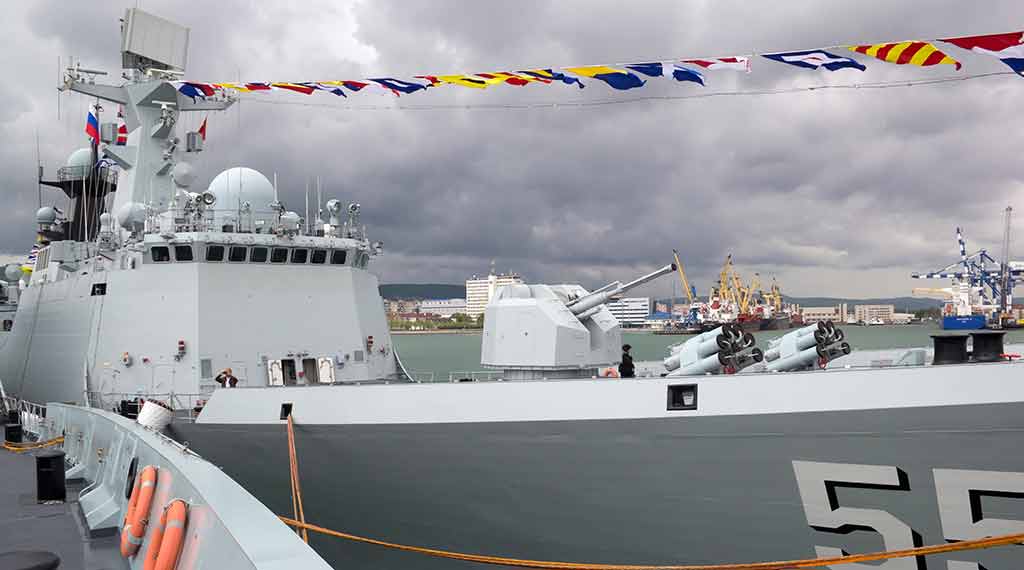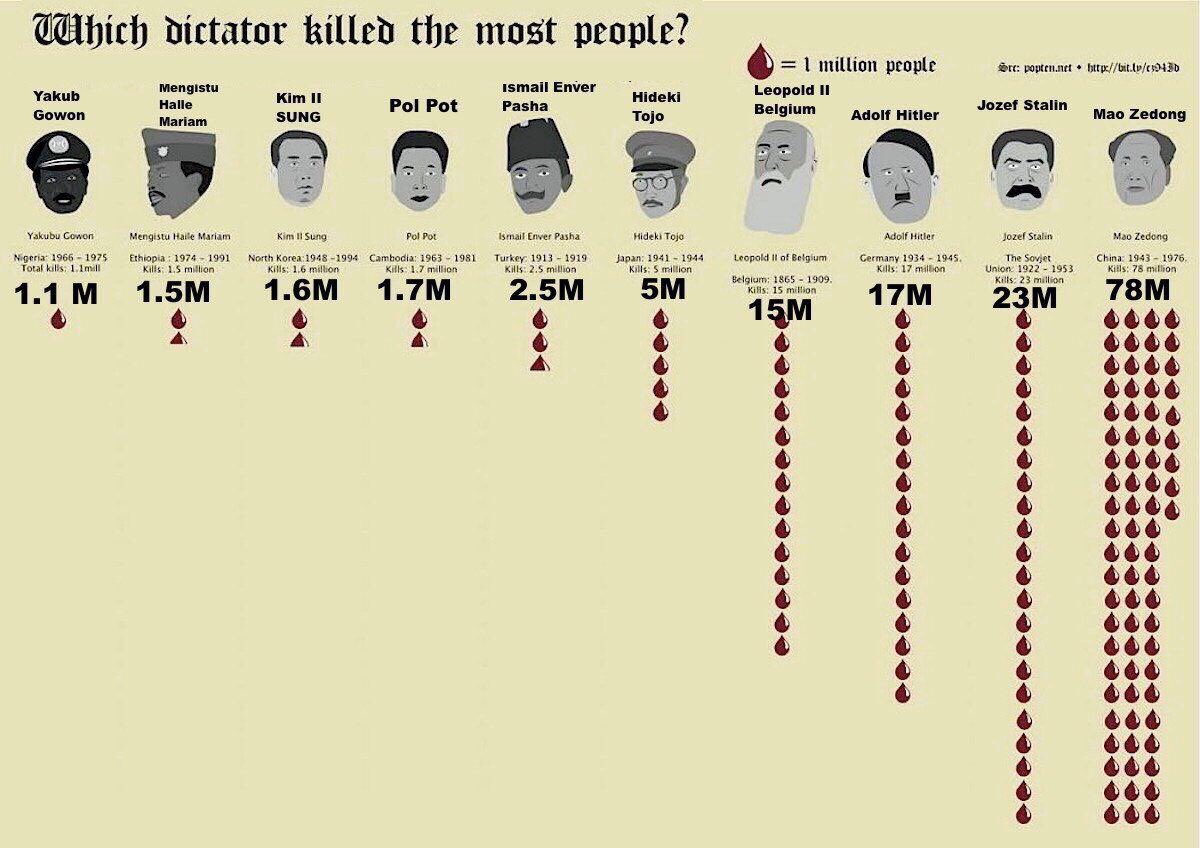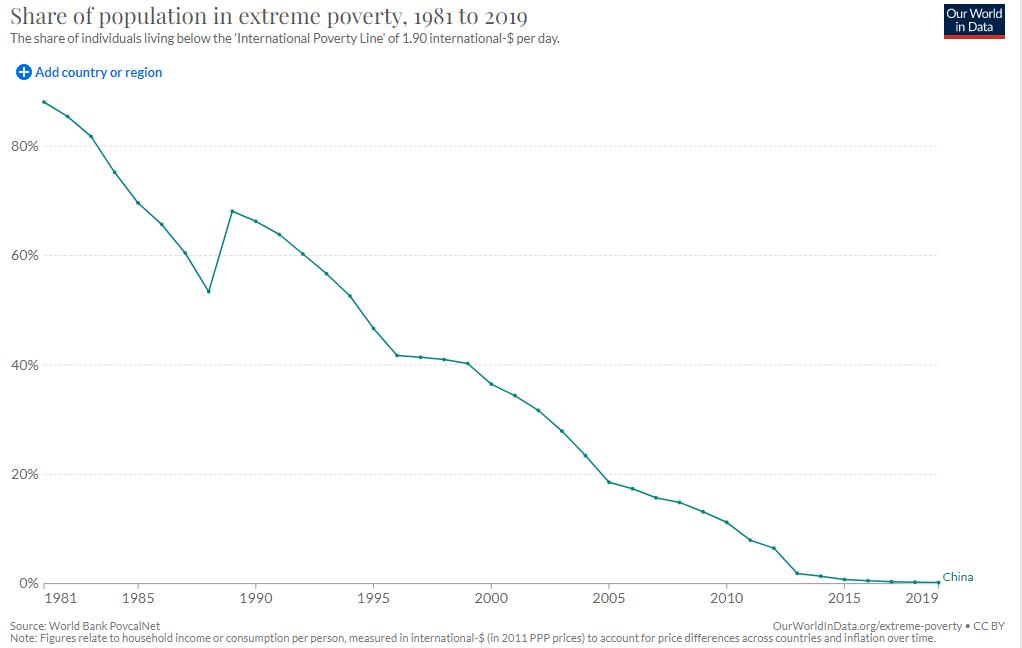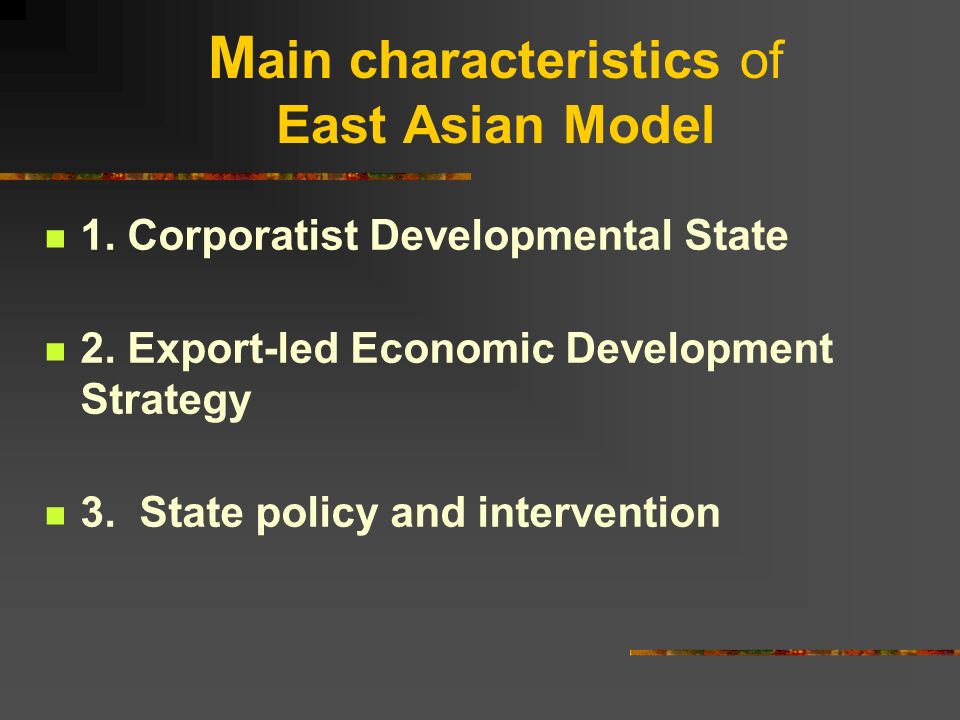onebyone
SENIOR MEMBER

- Joined
- Jul 2, 2014
- Messages
- 7,550
- Reaction score
- -6
- Country
- Location
The PRC’s rise is a failure of American presidential leadership
Bradley Thayer June 23, 2023Originally published by American Greatness

The foundation of the People’s Republic of China’s rapid growth was laid by Deng Xiaoping. Yet, it could not have been accomplished without U.S. support and cooperation. That the PRC is now the principal enemy of the United States and its challenger in all aspects of global politics is prima facie evidence of the failure of U.S. presidential leadership to prevent its rise.
The fundamental responsibility of every U.S. president was to defend the safety and national security of the United States. Since the end of World War II, the central objective of every U.S. president was to sustain what their predecessors had created. Then, having defeated one peer competitor, the Soviet Union, their obligation was to prevent the rise of another. It was an easier strategic task given the abject poverty and military weakness of the PRC. Thus, sustaining the status quo should have been a far easier task than generating U.S. victory in World War II and the defeat of the Soviets in the Cold War.
Yet they failed.
This failure compels an examination of why it occurred, and thus why post-Cold War U.S. presidents wasted what had been provided by previous generations. The buck stops with the U.S. presidents. During this period—Bill Clinton, George W. Bush, and Barack Obama squandered our earned advantage, before Trump attempted to reverse course, and now Joe Biden appears to be reversing Trump’s course correction.
An accounting begins with the recognition that presidential leadership regarding the PRC threat was absent in the aftermath of the Cold War. In fact, the U.S. aided the PRC’s rise through ever-greater volumes of trade and investment. While President Jimmy Carter granted Most Favored Nation (MFN) trade status to Beijing in 1980, the PRC’s growth did not take off until Deng fully supported capitalism in the wake of his 1992 economic reforms. Two years later, President Clinton ended the need for MFN renewal on a yearly basis, which had been linked, at least, to improvements in the PRC’s atrocious human rights record. Clinton granted the PRC MFN status on a permanent basis and placed the PRC on the path towards membership in the World Trade Organization (WTO). The PRC then entered the West’s economic ecosystem. From that time, the PRC’s rise was rapid and added a new peer competitor.
A review of this history reveals there were four major inflection points in the post-Cold War period where the PRC might have been stopped.
First, from Clinton to Obama, the presidents never publicly communicated to the U.S. government inter-agency system that the PRC was a threat to U.S. national security or tasked the inter-agency process with addressing the threat while Beijing was still relatively weak. Clinton, Bush, and Obama never challenged the intelligence community about the evidence regarding the PRC as a growing threat. Neither did they task the national security council to analyze options for checking and countering the PRC’s rise.
Second, Clinton’s termination of linkage between MFN renewal and the PRC’s human rights record blunted the most effective tool we had for combatting the PRC. Leadership on U.S. trade policy might have been employed to hinder the PRC’s growth and, likewise, the CCP’s claim to legitimacy. This was especially evident in the wake of the 1995-1996 Taiwan Straits crisis. But even this crisis did not change Clinton’s policy. The influence from Wall Street, Silicon Valley, and the Chamber of Commerce adversely affected the U.S. political system, including during the first Clinton Administration when “coffees” provided Chinese money to influence U.S. politics before the 1996 election. This pecuniary and malign influence had a powerful impact on the U.S. domestic political system. It rapidly broadened to include both major political parties. As a result, the highest levels of U.S. government leadership developed pro-PRC engagement priorities.
Third, Bush’s nascent presidency was rocked by the April 2001 collision between a PRC fighter and an unarmed U.S. EP-3E reconnaissance aircraft which offered Bush the possibility of re-evaluating the Sino-American relationship due to the aggression evinced by the Chinese military. The horrific 9/11 terrorist attacks eliminated that possibility. In retrospect, the Chinese Communist Party (CCP) viewed 9/11 as a windfall victory for the PRC as it distracted the United States—centering its strategic attention on the Middle East—away from the CCP’s agenda of expansion. Beijing took full advantage of that strategic preoccupation, with the active encouragement of many U.S. business partners, to achieve its present position as the peer competitor and main threat to the interests and position of the United States.
The major strategic consequence of 9/11 was that the United States did not move to reverse Clinton’s policy, it did not check Beijing’s rise when it might have done so at lower cost. The strategic myopia of the United States afforded the PRC a rare and priceless grand strategic gift in international politics: time that yielded freedom of action while the enemy was preoccupied. The results were to move from a relatively weak competitor to a great power, competitive rival without any effective resistance or counterbalancing from the United States. Indeed, just the reverse, unconstrained engagement with the PRC became the de facto U.S. foreign policy directive of this and future presidencies.
As a result, U.S. intellectual capital, investment, and outsourcing continued to flow to the PRC. Washington’s strategic nearsightedness permitted the PRC to change the status quo against the interests of the United States and its allies like Japan in the East and South China Seas, as well as greater belligerence toward a key partner like Taiwan.
Fourth, under Obama there was no change to the engagement strategy. In fact there was an expansion of this misguided strategy despite public proclamations of the administration’s “pivot to the Pacific.” The betrayal of the Philippines at Scarborough Shoal in 2012 single-handedly emboldened the PRC’s expansion in the South China Sea as Beijing realized it would receive no effective resistance from the Obama Administration. Despite a reversal during the Trump Administration, it now appears that the Biden Administration is returning to this failed and destructive agenda that has beset so many prior American presidencies.
As Deng planned, the PRC’s economic growth allowed it to establish new international economic institutions like the Asian Infrastructure Investment Bank (AIIB), and the Belt and Road Initiative (BRI), all of which laid the foundation for a new economic order. Beijing had time to spread its influence in Africa, Central and South Asia, the Middle East, Europe, and Latin America. In the military realm, the PRC augmented its conventional and strategic military capabilities, including in cyberspace and actual space, and in the development of hypersonic weapons. It created the world’s largest navy and generated the infrastructure to build and maintain that fleet. It also labored to professionalize its military and today has prepared it for combined, joint operations against the United States and its allies and partners like Taiwan.
The PRC acted boldly to solidify its impressive rise while the prime U.S. strategic focus was the war on terror in the Middle East and engagement with the PRC. Today the PRC is the most formidable peer competitor the United States has faced in its history. Whether China defeats the United States is the strategically dispositive question of the 21st century, but it is long past time that the United States recognizes the challenge and responds to it. Any response must acknowledge the historical record and the failure of presidential leadership, with the exception of Trump, to identify and defeat the threat.








